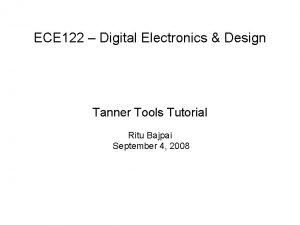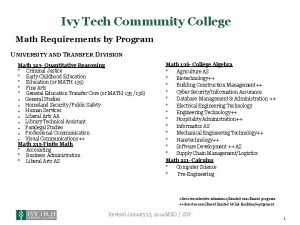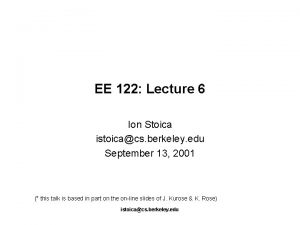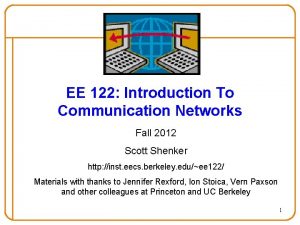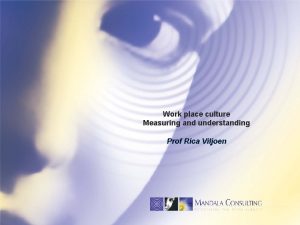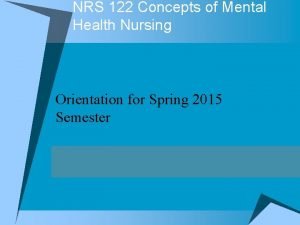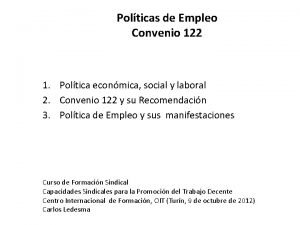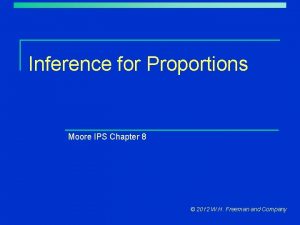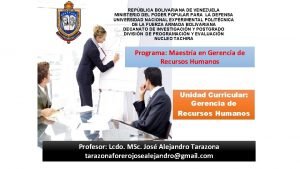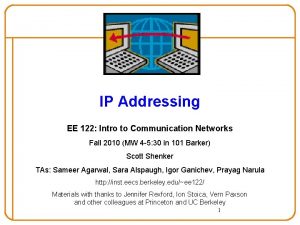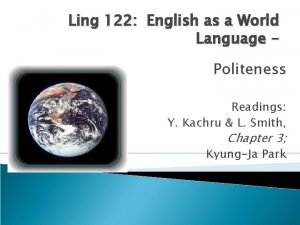LingAsia 122 English as a World Language 2









































- Slides: 41

Ling/Asia 122: English as a World Language – 2 Your Linguistic Heritage Based on Leanne Hinton Involuntary language loss among immigrants: Asian-American linguistic autobiographies

Exercise Born in Milwaukee, Wisconsin ◦ Influenced heavily by German culture ◦ Subsequent in-migrations and immigrations – Poland, Ireland, Italy, etc. ◦ Named after my mother’s family (‘Thom’) Post-WWII 3 rd & 4 th generation Parental language abilities ◦ Paternal grandparents ◦ Maternal grandparents Parental attitudes toward language Opportunities for use ◦ Community ◦ School ◦ University

Hinton’s Article: Goal of Immigrant Parents - It is usually the goal of the parents for their children to learn English fluently and adapt to their host country but not forget their heritage language. - To the parents' disappointment (and ultimately to the regret of the child), this goal is only rarely fully achieved. - It is commonplace for fluency in the first language to decline as English improves, so that by the end of the high school years, children are at best semi-speakers of their heritage language

Language Shift - This article draws on a set of linguistic autobiographies written by Asian-American college students in this author's classes at the University of California at Berkeley over the last several years, and examines the pattern of language shift that takes place in the young first and second generation student and why this shift takes place. - It also looks at the efforts families make to keep their heritage language strong (and why those efforts often do not work) and at those rare people who have succeeded in becoming bilingual, and what happened to make it possible.

Learning English Language shock - The most frequent experience reported by the students in their linguistic autobiographies is that they knew little or no English when they started school in the United States. - Many experienced "language shock. " As one student reported, "I never expected so much difficulties in assimilating into a brand new culture with a brand new language. “ - “Sink or Swim”.

Sources of Learning English Television One student wrote, "Until the age of about four, I spoke entirely in Korean with my parents. Shortly thereafter, I rapidly began to learn English. Television shows like "Sesame Street" and "Mister Roger's Neighborhood" greatly contributed to my learning process. The English sounds that had once been so foreign before soon became my own. "

Sources of Learning English Friends. -Friends may play the biggest role of all in helping children learn English. - Many students reported consciously cultivating friends who did not speak their language in order to learn English better. "I avoided speaking Korean as much as I could. I started hanging out with people to whom I could speak English. "

Sources of Learning English Family. While some families either cannot or choose not to use English at home, others play an active role in their children's acquisition of English. Older siblings are especially helpful in this regard.

Sources of Learning English Family. One student wrote, "I have two older sisters who started school before me, and my oldest sister still has memories of first starting school and not knowing the language. By the time I started school, it is possible that I had already learned to speak English from my sisters who had learned it in school, because I can't remember being teased for not speaking English when I started preschool. Therefore, I am certain I picked up English before I started formal schooling thanks to the precedent of my two older sisters. "

First Language Attrition - Although some students are still struggling to perfect their English in college, most of their worst difficulties with the language are behind them. - They certainly know English well enough to have been admitted to the University of California at Berkeley. - At this point, most of them are dominant in English, and they find that their heritage language has suffered.

First Language Attrition One student reported, "I noticed that I began to think more and more in English. Now, the only thing that is still Chinese in my mind is the multiplication table. I wish I had kept up with my reading skills in Chinese. It felt as though my Chinese heritage was fading away with my Chinese literacy. "

First Language Attrition First language attrition may manifest itself in different ways. For example, - Many children have only a passive knowledge of their heritage language. - They may reach a point where they understand the home language in a basic way but cannot speak as well as they understand. - Others may learn to speak their heritage language fluently but are unable to read and write it.

First Language Attrition In other cases, children and sometimes their parents speak a mixture of their native language and English. - Mixed Korean and English is often called "Konglish, " or "Korenglish" as in "Spanglish. " - Sometimes, this mixed language actually becomes the main language used at home. "My family and I still speak more English than Hindi at home. We have even developed a sort of Hinglish, which often consists of a mixture of the two languages. "

First Language Attrition Level of code-switching - In the majority of cases, this is involuntary code mixing done by people who command one language better than the other and not the stylistic switching done by balanced bilinguals. - Because most of the students who wrote in these autobiographies are only semi-speakers of their heritage language, many report language mixing as the best they can do with their heritage language. - Involuntary code-switching is often used with their Asian -language-dominant parents.

First Language Attrition Problem of HL attrition -Heritage language attrition can create many problems for children who find themselves frustrated, unable to communicate effectively with relatives, alienated from peers in the old country, and humiliated in front of visitors to the home. - One of the biggest difficulties that comes with first language attrition is its impact on communication in the family. - The parents may not know English well enough (or at all) to communicate on an intimate level with the child, and the child may not have a good enough grasp of the heritage language to bridge this communication gap.

First Language Attrition According to one student, Even with the Chinese I speak, I am limited to the normal yet shallow "everyday" conversations I have with my parents and do not have enough of a vocabulary to have meaningful talks with them. Such was the case just the other night when they asked me what my major at Berkeley was but I did not know the phrase for "Biology, " much less, "Molecular and Cellular Biology. " The best I could manage was "science" in Chinese and explained the rest in English; I could not communicate to them why I selected this major, what I was going to do with it, and so forth. We ended the discussion by changing the subject.

Factors Relating to First Language Retention and Attrition Dilemma re. the use of the heritage language - Because of the heritage language at home is vital to helping children retain it, many parents are faced with the dilemma about whether they should speak English at home. - In homes where parents speak little or no English, there is no choice but to use the heritage language. - However, what happens in cases where parents have achieved some level of proficiency in English?

Factors Relating to First Language Retention and Attrition - Should they speed their children's English acquisition by speaking it with them, or would that hurt their children's chances of retaining the heritage language? - It is clear that children who don't know English suffer emotionally and educationally, at least for the first year or so, and schools often strongly encourage parents to use English at home.

Factors Relating to First Language Retention and Attrition - All of the students who reported that they retained fluency or near-fluency in their native tongue came from homes where the heritage language was spoken by matter of policy, i. e. family policy. One student wrote, "Chinese was still the dominant language in our household; English was a forbidden taboo. My parents had wanted to ensure the fact that I would never forget my language and culture. "

Factors Relating to First Language Retention and Attrition Two keys for success Those families whose children did succeed in maintaining fluent bilingualism throughout the period of the study differed from the others in two key ways: (1) the parents were consistent about the approach and most importantly did not let the children respond to them in the inappropriate language; (2) the children had people besides their parents to talk to in the heritage language. Other relatives or neighbors, or social or religious groups that use the heritage language provide necessary language support that offers both further exposure and motivation to the child.

Factors Relating to First Language Retention and Attrition Major Cause of HL attrition (Language Rejection) - A factor that may be even more important in language attrition than any of the above is language rejection by the children themselves. The children are subjected to tough assimilative pressures at school, mainly from their classmates. - They may be made to feel different, and their language or accent may be ridiculed. The children begin to develop a sense of shame about their language and culture and accordingly make every attempt to suppress it.

Factors Relating to First Language Retention and Attrition - In a kind of reverse shame, language rejection may also occur or be intensified as a result of discouragement over one's lack of knowledge of the heritage language; non-fluent children try not to speak the language at all for fear of being criticized or laughed at by those who speak it better. - For a smaller number of students, language rejection is less emotional and more pragmatic. Students who have lived in America most or all of their lives often simply see no use in using their heritage language.

Efforts at Language Maintenance It appears that heritage language retention is successful only if the language is used in multiple contexts, which not only allows for sufficient input for continued language development but also helps the child realize the usefulness of the language and provides motivation. Heritage Language School - When parents see their children losing their heritage language, they often make strong efforts to remedy the situation. The two most common means of trying to stem this loss are increased insistence on use of the heritage language at home and enrolling children in a heritage language school.

Efforts at Language Maintenance These schools teach literacy and oral skills in the heritage language as well as values and culture. - Children go to these schools after regular school or on Saturdays. - For several reasons, however, students write almost unanimously that as children they disliked the Saturday schools and felt they did not benefit much from them.

Efforts at Language Maintenance Television Many students wrote in their autobiographies that heritage language television was helpful in maintaining or improving their home language. One student wrote, "Television again came to the rescue. It was the medium that led me to become more fluent and confident with Mandarin since most Chinese television shows on TV were spoken in Mandarin. "

Efforts at Language Maintenance Peers Having peers with whom one can speak the language is an important factor in heritage language maintenance. - Students who grew up in an ethnic enclave with neighbors who spoke their language were much more successful at retaining their heritage language. One student wrote, "Coming from an immigrant family, Cantonese was the first language I learned. My learning was reinforced since I lived in San Francisco's Chinatown and attended a bilingual day care center. "

Efforts at Language Maintenance Occasional Visits to the Homeland - There may be nothing better for family retention of the heritage language than making return trips to the homeland. - Families able to retain these close ties are those in which bilingualism is most likely to thrive. - A visit to the homeland may give many Asian. American children who might otherwise abandon their heritage language new motivation to learn.

University Environment - The University of California, Berkeley, has a richly diverse student body (the same is true for SJSU) - Campus clubs and nearby church groups allow students to form bonds with people of a similar background. - Many of the students in this study found groups of friends of similar ethnic identity and language background, which awakened a new desire to improve their heritage language skills.

University Environment - Also, for the first time, most of them were at a school where their languages were actually taught as academic subjects; it was their first opportunity to take classes in their heritage language. - Many Asian-American students undergo an intense and poignant effort to reconcile the conflicting forces in their lives and find a comfortable sense of identity. - - Some who have spent their lives becoming as Americanized as possible still feel that racial attitudes in the United States keep them from assimilating completely.

University Environment - The college years are often a time when students begin to look at their heritage identity positively and make efforts to reclaim it. - Some strongly embrace their American identity but argue that knowing other languages is not un-American.

University Environment - Students who are still struggling with English most often care more about improving their English skills than maintaining their heritage language. - But many who have lost or never attained fluency feel incomplete. Those who are satisfied with their language skills in both languages tend to have a more positive self -image.

Thoughts for Future Generations - While there is a great deal of variation in heritage language fluency among the students studied here and many different views about identity, almost all of the students agree that they want their children to know their heritage language if at all possible. One said, "I'm scared to lose a part of who I am. But more importantly, I realize that I have the awesome responsibility of one day passing on a precious language, that really is more than just a language, to my own children. "

Conclusions The changes in language attitudes that these students report are in keeping with Tse (1998), who discusses stages of ethnic identity formation: 1. Unawareness 2. Ethnic ambivalence/evasion 3. Ethnic emergence 4. Ethnic identity incorporation. Most of the people writing these autobiographies are in stage 3 or 4, but the language journey for these college students is far from complete.

Conclusions - Most will probably continue to go through periods when their heritage language is more important to them and others when it is less important. - Some will go on to careers where their contacts with the homeland are enhanced or where their heritage language plays a role, others will not. - Some will marry people of the same language background, others will not.

Conclusions While almost all of the students write that they hope to help their own children grow up bilingual, we know from past experience that second- and third-generation Americans are increasingly likely to know very little of their heritage language. Either the intergenerational struggle so clear in these autobiographies is likely to be repeated between these students and their children, or the families will surrender to English.

Linguistic Heritage Paper Interview ◦ ◦ Grandparents Parents Older siblings Other relatives ◦ ◦ Parents’ language goals for children Language shift – if and when it occurred Language shock – difficulties learning English Sources of learning English – TV, friends, school, older relatives, etc. Research linguistic heritage in terms of:

Linguistic Heritage Paper Heritage Language Attrition & Heritage Language Retention ◦ Language of the home? ◦ ◦ Mixed language, code switching, etc. ) Parental support for School language or HL Family language policy HL support network HL rejection – why? Reverse shame. Lack of perceived use, etc. ◦ HL schools ◦ University life

Linguistic Heritage Project - 1 Describe what you know about your linguistic heritage over the last four or five generations of your family. Consider the following: language shift, the sources for learning English, language shock, first language attrition, first language retention / maintenance, language attitudes, parents’ goals for their children, the role of schooling and other influences. How important is your linguistic heritage to you? Which languages of your linguistic heritage do you speak? With whom do you speak them? Do you ever code-mix your languages? If so, with whom? Are there some languages which you understand but don’t speak? Are there members of your extended family with whom you cannot communicate because you do not share a common language? What kinds of problems, if any does this create? Etc.

Linguistic Heritage Project - 2 Many people have strong attitudes about language(s) and dialects. Several years ago, there was a controversy over whether or not Ebonics should be used in the Oakland School District. Similar arguments erupt periodically over the use of Hawaiian Creole English in Hawaii public schools. It is not difficult to find other examples. These attitudes about language varieties pervade our lives and influence perceptions about the people who speak them Describe, provide examples of, and critique the language attitudes that pervaded the context in which you grew up. How did those attitudes affect you? Do they still? If so, in what ways? If not, how have you overcome them?

Linguistic Heritage Project - 3 The spread of English has been viewed both positively and negatively. Among the former views are those of Telma Gimenez: ◦ [H]aving a common language helps us to see ourselves as human beings who live on the same planet, and to that extent can be said to form one community. The value of knowing English lies [in] the possibility it offers for creating acceptance of, and respect for, the World’s diversity. English allows us to advance toward global exchange and solidarity among the institutions of civil society, extending bonds between citizens far and wide across the globe. For this reason, considering English as an international language can also bring a sense of possibility in terms of strengthening what might be called ‘planetary citizenship’…. A more pessimistic view is expressed by Phillipson, who sees the spread of English as an international language as a form of linguistic imperialism, in which “the dominance of English is asserted and maintained by the establishment and continuous reconstitution of structural and cultural inequalities between English and other languages…. ” (p. 47) Based on your readings, the videos viewed in class, your own research, and your own experiences, argue for one side of the debate or the other by anticipating the arguments from the opposite side and providing counter arguments. Support your claims with data and/or examples.

Group Work In pairs, choose one of the three topics for paper 1 and discuss the issues involved for you personally.
 8dar8
8dar8 Nec 250-94
Nec 250-94 Http://122
Http://122 Homework 122
Homework 122 Eecs 122
Eecs 122 Ece 122
Ece 122 Section 122(9)
Section 122(9) Ivy tech finite math
Ivy tech finite math Eecs 122
Eecs 122 Nec 250 122
Nec 250 122 Psalm 65:5-8
Psalm 65:5-8 Tehillim 122
Tehillim 122 Ion stoica berkeley
Ion stoica berkeley Ee 122
Ee 122 Ee 122
Ee 122 Classes of airspace
Classes of airspace Psalm 112 tpt
Psalm 112 tpt 50000/122
50000/122 François quesnay
François quesnay What is 757 rounded to the nearest ten
What is 757 rounded to the nearest ten Psalm 24:5-6
Psalm 24:5-6 Nrs 122
Nrs 122 A traffic light weighing 122 n
A traffic light weighing 122 n 122+105
122+105 Texto en 3ra persona
Texto en 3ra persona Convenio 122 oit
Convenio 122 oit You buy a package of 122 smarties
You buy a package of 122 smarties Ece 122
Ece 122 Ee 122
Ee 122 Articulo 122 lottt
Articulo 122 lottt Psalm 122:1-9
Psalm 122:1-9 Makanan yg disediakan pengusaha ternak selama 30 hari
Makanan yg disediakan pengusaha ternak selama 30 hari In ip addressing, an address beginning with 122 is
In ip addressing, an address beginning with 122 is Frc pneumatics diagram
Frc pneumatics diagram Ee dns servers
Ee dns servers 122design
122design Levels of language knowledge
Levels of language knowledge Old vs new world monkeys
Old vs new world monkeys New world to old world columbian exchange
New world to old world columbian exchange Real world vs digital world
Real world vs digital world Plato's forms
Plato's forms Ap world history chapter 25 africa and the atlantic world
Ap world history chapter 25 africa and the atlantic world





